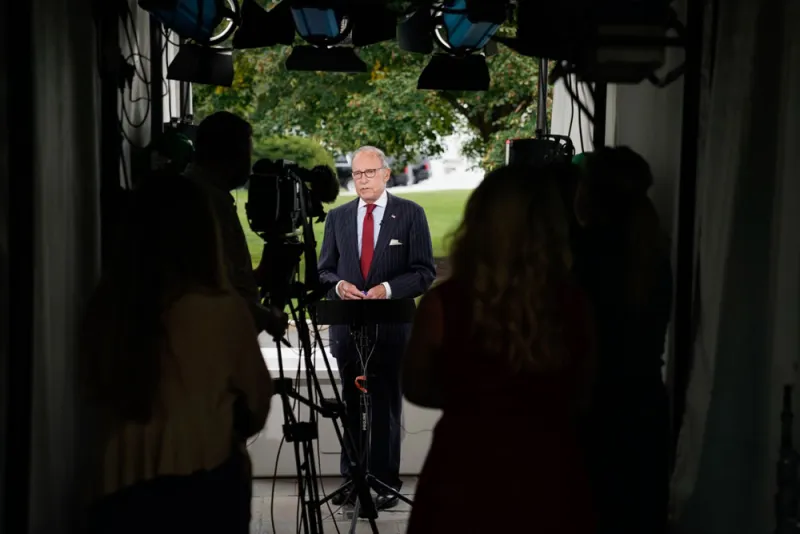Late Wednesday, the New York Times reported the story of how officials from the Donald Trump administration had privately expressed fear of a coronavirus outbreak while publicly expressing more positive views — and how that information had been sold onto at least one hedge fund by a “consultant.”
But who is William Callanan, the “outsourced strategy officer” at the center of the storm?
Callanan is best known for his efforts as a portfolio manager, analyst, and investment strategist who worked at some of the most high-profile macro hedge funds in the business: Soros Fund Management, Fortress Investment Group, and Stanley Druckenmiller’s Duquesne Capital, according to published reports. In 2019, Callanan left another well-known hedge fund firm — Key Square Capital, started by former Soros investment chief Scott Bessent — to start London-based Syzygy Investment Advisory.
Callanan, an astronomy buff, named the investment advisory firm after an astrological term for the alignment of three celestial bodies, according to a Financial Times report last year. Rather than make its own investments, Syzygy provides long-term investment themes “and aggressive ways of trading them” to hedge funds, pension funds, sovereign wealth funds, and other clients who implement the positions themselves, according to the FT report.
Callanan is also a member of the 100-person-plus board of overseers of the Hoover Institution, a conservative think tank out of Stanford University that researches the economy, national security, and other matters, according to the Times.
The Hoover board held meetings in Washington, D.C. over three days in February, which Callanan attended. Those meetings are the subject of the Times’ report.
At the meetings, administration officials delivered sobering information about the coronavirus that contrasted sharply with the more positive public messages delivered by President Trump and National Economic Council director Larry Kudlow the previous day. On February 24, President Trump tweeted that the virus situation was “very much under control,” and Kudlow told CNBC on February 25 that containment of the virus in the U.S. was “pretty close to airtight.”
Callanan prepared a briefing on the meetings that highlighted the administration’s private views — namely, that government officials were far more aware of the threat of a widespread outbreak and ensuing economic downturn than they were letting on to the public.
“What struck me,” the memo stated, was that nearly every official at the meeting referred to the coronavirus “as a point of concern, totally unprovoked,” according to the Times account.
The Times reported that the memo was occasionally “breathless and inchoate” and “appears to have overstated the gravity of some administration officials’ warnings to the group and included dire projections from the Centers for Disease Control and Prevention, without clear attribution, that do not appear to have come from the gathering.” The Times said it only published passages of the memo that it could independently confirm.
Callanan sent the memo to select contacts, asking them to keep the information confidential.
Nevertheless, “the consultant’s assessment quickly spread through parts of the investment world,” according to the report. Although U.S. stocks were already tanking after a federal public health official warned that the virus was likely to spread, “traders spotted the immediate significance: The president’s aides appeared to be giving wealthy party donors an early warning of a potentially impactful contagion at a time when Mr. Trump was publicly insisting that the threat was nonexistent.”
The email’s recipients included David Tepper, the founder of hedge fund Appaloosa Management whose commentary often moves markets, according to the Times report. In a February 3 CNBC appearance, Tepper became one of the first major money managers to assert bearish views over the potential outbreak of the virus. Tepper is not a client of Callanan’s firm.
Callanan’s “lengthy email” to Tepper included briefings from the Hoover meetings and also mentioned how poorly prepared public health agencies appeared to be in fighting a pandemic, the Times report noted. The report added that the email circulated among Appaloosa employees, who also sent it to outside investors, highlighting the more alarming parts of the email.
Tepper declined to comment when reached by Institutional Investor. Callanan also declined to comment, but he told the Times in a statement that “personal and professional views based on extensive research and publicly available information,” showed his “concern on the global pandemic that was emerging.”
A source close to the situation described Callanan’s communication with Tepper as a back-and-forth email exchange that focused more on the unfolding health crisis than the administration’s views of it. Callanan, a commodities specialist with China expertise, had been traveling to China for 20 years and was growing alarmed at the situation in February, having closely studied early data from epidemiologists, the source said.
Callanan’s emails to Tepper included some commentary about the health crisis, this person added.
Callanan told the FT in 2019 that he opted to structure Syzygy as an investment adviser rather than an investment management firm because of headwinds facing hedge funds. “This is endemic of where the industry is going,” he said at the time. “We tell people when the investment becomes attractive, and ‘here’s the decision you could make.'”
It also seemed to fit more with what clients wanted, he told industry publication Hedgeweek in an August interview. “Throughout my career, regardless of strategy, every investor meeting always concluded with the same question: ‘What are your top three ideas?’ That was what everybody always wanted to know,” he said at the time, adding that the firm focuses on 10 to 15 close relationships with clients who run large, long-duration pools of capital, rather than having dozens of clients, as is more typical with advisory firms.
“Our goal is not to be something for everyone, but to be a lot for a few,” he said.







